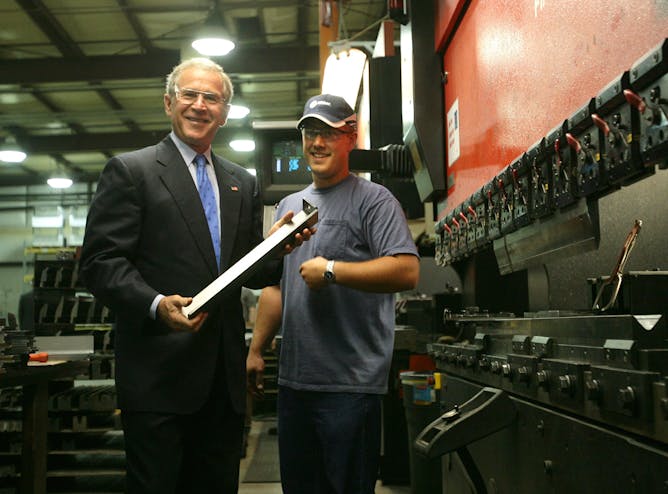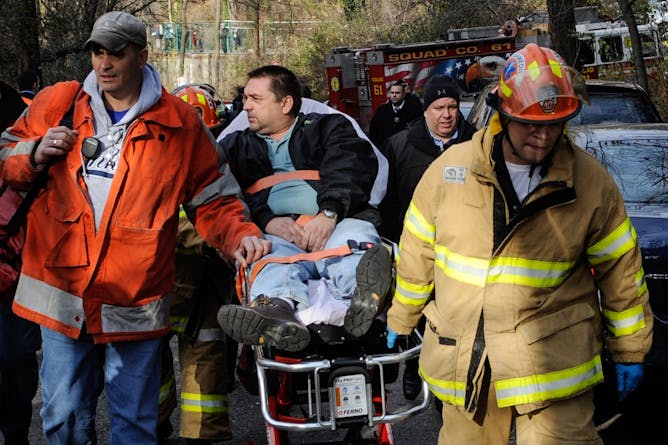Editor's note
|
|
President Donald Trump finally followed through on a long-standing threat to impose steep tariffs on imports of steel and aluminum, prompting a rift with many fellow Republicans. He cited “national security” as the reason behind the order, but it’s really about politics and influence, writes University of South Carolina economist William Hauk. It’s also a major gamble for Trump. As Hauk explains, the story of what happened the last time the U.S. imposed steel tariffs – in 2002 – provides a cautionary tale.
University of Oregon management professor David Wagner offers a bit of a cautionary tale of his own about an oft-dreaded ritual that occurs this Sunday morning – the annual “springing forward” for daylight saving time. There’s more to the hour of lost sleep than most people suspect, Wagner writes. The “shift to daylight saving time leads to costly work and social outcomes.”
And, this Sunday’s hour change marks the 100th anniversary since Congress passed the Calder Act, which required Americans to “spring forward” for the first time. Tufts University English Professor Michael Downing tells the story of how daylight saving came to fruition – the debates among legislators, the role of big business, and the pushback from the public.
|
Bryan Keogh
Economics + Business Editor
|

|
|
Top stories
|

Bush, seen here in 2006, revoked his steel tariffs less than two years after imposing them in 2002.
Reuters/Jason Reed
William Hauk, University of South Carolina
President Trump slapped steep tariffs on steel imports, echoing protectionist measures taken by Bush in 2002.
|

A New York engineer is wheeled away in December 2013, after a train he was driving crashed. Lack of sleep could have been a factor.
AP Photo/Robert Stolarik
David Wagner, University of Oregon
Most Americans dread the time switch to daylight saving time, which results in a loss of an hour's sleep. The downside is more serious than that – it can lead to workplace injuries and traffic fatalities.
|

Unfortunately, there’s not an unlimited amount of daylight that we can squeeze out of our clocks.
igorstevanovic/Shutterstock.com
Michael Downing, Tufts University
The original arguments Congress made for 'springing ahead' have been thoroughly debunked. So why are they still being used by legislators today?
|
|
|
|
|
|
|
|
|
|
|
From our international editions
|
-
Janet M. Lord, University of Birmingham
Doing exercise throughout your adult life can maintain your muscle mass, bone and immune system, and keep you healthy in old age.
-
Mehmet Ozalp, Charles Sturt University
Despite a devastating toll in the seven-year conflict, which has seen 400,000 people killed and six million displaced, there is no end in sight for the people of Syria.
-
David E Kiwuwa, Princeton University
The Chinese Communist Party's decision to remove presidential term limits could be a signal to African despots.
|
|
Today’s chart
|
-

 Michael S. Jaffee
University of Florida
Michael S. Jaffee
University of Florida
| |
| |
| |
|
|